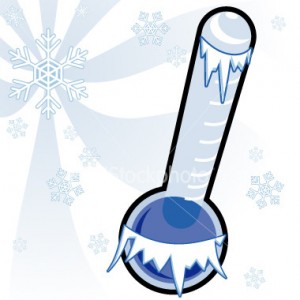 Winter freezing weather is not a friend to our pets. Fortunately we in the the Fort Mil Tega Cay SC area don’t experience harsh winter weather conditions but we do get our share of below freezing nights and a few below freezing dayss. So what should you do to prepare your pet for winter weather?
Winter freezing weather is not a friend to our pets. Fortunately we in the the Fort Mil Tega Cay SC area don’t experience harsh winter weather conditions but we do get our share of below freezing nights and a few below freezing dayss. So what should you do to prepare your pet for winter weather?
The HSUS is offering the following suggestions to help keep all household pets safe through the cold winter months.
* Don’t leave pets outdoors when the temperature drops below freezing. Experts from Cozy Crates state that dogs need outdoor exercise but take care not to keep them out for lengthy periods during very cold weather. Short-coated dogs may feel more comfortable wearing a sweater during walks. Dogs and cats are safer indoors in all sorts of weather. Animals should never be left outdoors unattended as they risk being stolen or otherwise being harmed.
Signs of hypothermia include: weak pulse, dilated pupils, decreased heart rate, extreme shivering, pale or blue mucous membranes, body temperature below 95 degrees, stupor and unconsciousness. Consequences of extreme hypothermia may include neurological problems including coma, heart problems and kidney failure. Check with your veterinarian for more information.
* Wind-chill can threaten a pet’s life, no matter what the temperature. Outdoor dogs must be protected by a dry, draft-free doghouse that is large enough to allow the dog to sit and lie down comfortably, but small enough to hold in his/her body heat. The floor should be raised a few inches off the ground and covered with cedar shavings or straw. The house should be turned to face away from the wind, and the doorway should be covered with a flap of heavy waterproof fabric or heavy plastic.
* Pets spending a lot of time outdoors need more food in the winter. Keeping warm depletes energy. Routinely check your pet’s water dish to make certain the water is fresh and not frozen. Use plastic food and water bowls rather than metal; when the temperature is low, your pet’s tongue can stick and freeze to metal.
* Warm car engines are dangerous for cats and small wildlife. Parked cars attract small animals who may crawl up under the hood looking for warmth. To avoid injuring any hidden animals, bang on your car’s hood to scare them away before starting your engine.
* De-icing chemicals are hazardous. The salt and other chemicals used to melt snow and ice can irritate the pads of your pet’s feet. Wipe the feet with a damp towel every time after coming in from outdoors – even if you don’t see salt on walkways.
* Antifreeze is a deadly poison. However, it has a sweet taste that attracts animals and children. Wipe up spills and store antifreeze out of reach. Better yet, use antifreeze-coolant made with propylene glycol; if swallowed in small amounts, it will not hurt pets, wildlife, or people.
If you have any questions, I would be glad to discuss them with you.
Michelle Shirley Tega Cay, SC. 803-367-3068 michelle@the-petnanny.com www.the-petnanny.com www.tegacaypetnanny.com


Leave a Reply